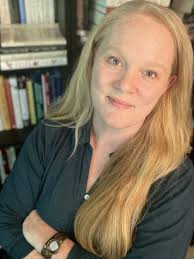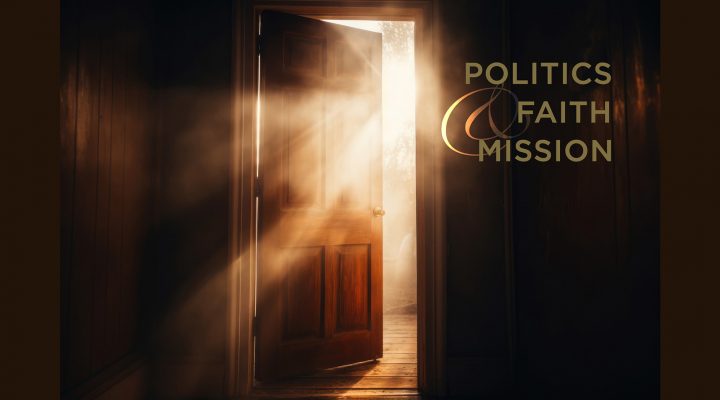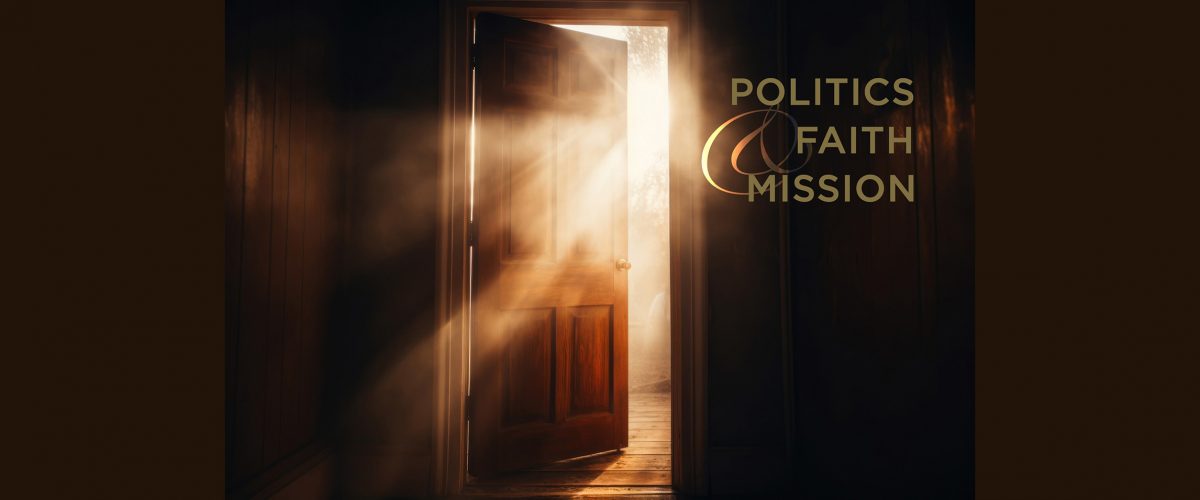Tia Levings was deeply embedded in a Christian fundamentalist movement that sanctioned her abuse and complete control by her husband. As she describes in her new memoir, A Well-Trained Wife: My Escape from Christian Patriarchy, she fled that tradition to save her sanity and her children. Levings is rightly considered an expert on Christian fundamentalism, evangelical patriarchy and religious trauma. She has been widely quoted by the media and read on social media, and she appeared in the 2023 Amazon documentary Shiny Happy People: Duggar Family Secrets. I’m so grateful for her fine and moving book, and for her responses to these questions.
Greg Garrett: Tia, in many of the conversations I’ve had this year with folks who have left the iteration of the church — or the understanding of God — that shaped them, there’s a moment that felt like a tipping point. You describe one such moment early in A Well-Trained Wife. Could you tell my readers about when you realized maybe Jesus — or, more properly, the people badly representing him — was not going to save you and you had to stand up for yourself and your children?
Tia Levings: It’s important to note this moment was years in the building. I’d been obedient, far beyond how far many would consider reasonable, and “tried everything,” including turning to my church. Over and over again, I’d learned I was on my own. And yet I’d refused to take that to heart, determined to wait on an external savior as I’d been taught my whole life to do. The moment I opened the book depicted standing at the final line, full of despair. If I survived, was I willing to let my kids suffer the way I was? I was not.
GG: You talk early on and throughout about the concept of Dominionism. Could you define it for us and talk about how you came to see Dominionism as a flawed and even dangerous idea when it was used to normalize certain practices and beliefs in churches, families and relationships with God?
TL: Dominionism as I was taught is the belief that Christians have a mandate from God to take over the country, but really the globe, for Christ in order to trigger the Second Coming of Christ. It takes the verses in Genesis, where man has dominion over creation, and the Great Commission, which is about spreading the gospel throughout the world, and combines them for political gain and power.
Dominionists are cocky, snarky, dismissive and ignorant to the value others bring. Thinking that way toxified every relationship.
The fruit of a dominionist mindset in my personal life was arrogance. It meant lording “the right way” over others, regardless of their own journeys and traditions. It meant raising my children with entitlement rather than humility or service, breeding a quest for power and control into them, which is the opposite of what Jesus taught. Dominionists are cocky, snarky, dismissive and ignorant to the value others bring. Thinking that way toxified every relationship.
GG: One of the things that has been most apparent culturally and politically over the past 10 years is that people have gaslighted other people, telling them what they’re seeing or what they’re experiencing is not what it looks like. Certainly, as we’re reminded daily in the news, some iterations of Christianity have achieved championship status at these dark practices. In your own life and observation, could you talk about why it’s so important to call things what they are?

Tia Levings
TL: Using the proper names for a behavior powerfully reveals motive and often puts the onus on the offender rather than the victim. For example, when news about pastoral abuse breaks, the headlines and church gossip will soften reality. “Pastor admits to inappropriate relationship” is not the same thing as “Pastor raped a child.”
Politically, after the shooting at the Trump rally, some Republicans blamed it on talk that democracy was threatened. We know democracy is under threat — there’s a path of receipts proving that — and yet in the emotions after political violence, many people questioned if that was right. Just two weeks later, Trump himself said Christians would only have to vote one more time and then never again.
Coming out of that world, where the truth is manipulated and warped to serve abusive agendas, I rely on proper names, actual definitions, etymology, witnessing myself — watching the original source as much as possible — and receipts to remind myself of what’s real.
GG: I’m asking most of the folks I talk to this year to reflect on the problem of white Christian nationalism, and you have observed the way American Christian patriarchs run their families is the way they want to run this country. Could you help my readers understand where you see what happened to you playing out on a larger stage in the GOP and in the nation, if they get their way?
TL: Family government is the basis the patriarchy uses as the model of authority they embrace. Dad leads, mom serves at home, the children obey. Scale that up and package it along with their other messaging that pulls society back in time, and it clarifies further — white men lead, women stay home and make/raise babies, everyone under authority/dominion works and serves.
Through initiatives like Project 2025, they’ll either legislate this into reality or craft it by making alternatives or progress impossible. For example, taking away contraception to increase pregnancies; restricting gynecological health care to force births; offering increased votes to fathers — JD Vance suggested this; removing suffrage so that only men vote — an increasingly popular idea among patriarchal pastors; eliminating resources like libraries, school lunch, fair hiring, equal education. These are all moves Christian nationalism is making to shape our society into what they want.
It’s worth noting the organizations behind Project 2025 formed in reaction to racial integration and widening democracy.
It’s worth noting the organizations behind Project 2025 formed in reaction to racial integration and widening democracy. The Heritage Foundation has racist roots and has exerted 50 years of patriarchal pressure over presidents and church congregations.
GG: The joy of your book is how you found hope and purpose despite the horrors and sorrows of your life, and I always want to ask where people are finding hope in this horrible and oft-sorrowful 2024. What are you reading, seeing or doing that brings you hope and reminds you we are better than our worst fears or worst actions? Thanks so much for your book and for your life, Tia.
TL: You’re quite welcome. Thank you for seeing my story as one of victory. I always say if a writer has healed enough to tell her story through to publication, she won. I find hope and reclamation in using my experiences to empower others. So many are impacted by fundamentalist influences in their families, in traumatic backgrounds and in our emotionally charged world without understanding where it came from. I’m grateful to be able to offer some light.
I read a lot of poetry these days, as well as fiction where the characters grow, change and evolve. I love a strong character arc, where readers can observe a relatable character changing her mind when she encounters new information. I also love connection and the power of a plainly spoken admission: Often, when I speak a hard truth, someone sighs with relief that the secret is out. “Me too” sometimes is easier to say than going first. But I can go first; that’s something I can do.
It only takes one twinkle of light to change the darkness. And I like remembering that because it helps me reclaim a happy religious memory — being at summer camp, singing “Pass It On” with my friends: “It only takes a spark to get a fire going.” They weren’t wrong about the spark. But these days, my fire isn’t for high-control religion, but for truth, freedom and love. I like life better this way, by far.
Greg Garrett teaches creative writing, film, literature and theology classes at Baylor University. He is the author of two dozen books of fiction, nonfiction, memoir and translation, including the critically acclaimed novels Free Bird, Cycling, Shame and The Prodigal. His latest novel is Bastille Day. He is one of America’s leading voices on religion and culture. Two of his recent nonfiction books are In Conversation: Rowan Williams and Greg Garrett and A Long, Long Way: Hollywood’s Unfinished Journey from Racism to Reconciliation. He is a seminary-trained lay preacher in the Episcopal Church. He lives in Austin with his wife, Jeanie, and their two daughters.
More from this series:
Politics, faith and mission: A conversation with Linda Livingstone
Politics, faith and mission: A conversation with Samuel Perry
Politics, faith and mission: A conversation with Jimi Calhoun
Politics, faith and mission: A conversation with David Dark
Politics, faith and mission: A conversation with Randolph Hollerith
Politics, faith and mission: A conversation with Jillian Mason Shannon
Politics, faith and mission: A conversation with Bishop Mariann Edgar Budde
Politics, faith and mission: A conversation with Vann Newkirk II
Politics, faith and mission: A conversation with Sarah McCammon
Politics, faith and mission: A conversation with Winnie Varghese
Politics, faith and mission: A conversation with Kaitlyn Schiess
Politics, faith and mission: A conversation with Russell Moore
Politics, faith and mission: A BNG interview series on the 2024 election and the Church
Politics, faith and mission: A talk with Tim Alberta on his book and faith journey
Politics, faith and mission: A conversation with Jemar Tisby
Politics, faith and mission: A conversation with Leonard Hamlin Sr.
Politics, faith and mission: A conversation with Ty Seidule
Politics, faith and mission: A conversation with Jessica Wai-Fong Wong


